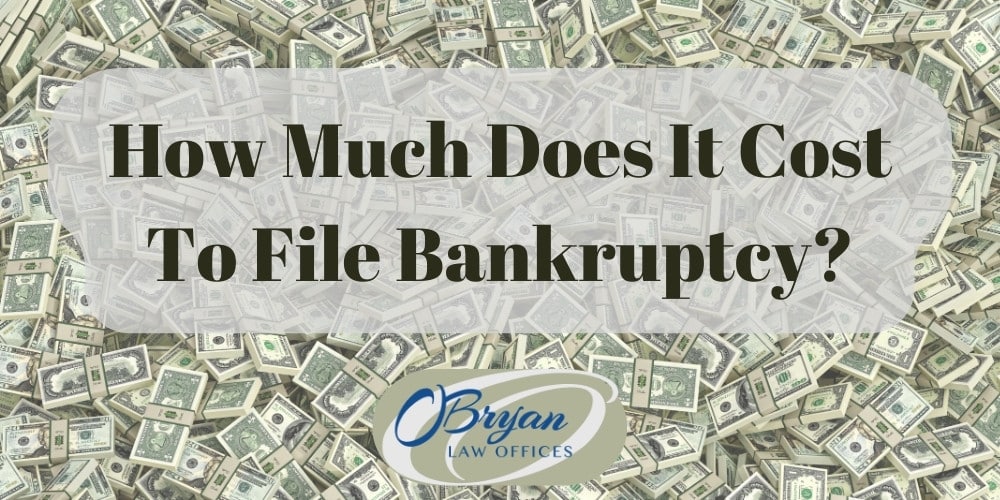Bankruptcy can provide financial relief for many adults with large amounts of debt. Filing bankruptcy can help people get a handle on their financial situation and get back to living a stress-free life. The goal of bankruptcy is debt relief, so it seems paradoxical that it would cost money to file for bankruptcy. So, how much does it cost? To file bankruptcy, you have to be able to pay certain associated fees. Filing fees, attorney fees, administrative fees, and court costs can add up quickly. Depending on your situation, these costs can range from a few hundred to a few thousand dollars.
At O’Bryan Law Offices, our bankruptcy attorneys know how to handle all aspects of the bankruptcy process. For more information about how we can help, call us today at (502) 400-4020. In the meantime, read on to find out more about the cost of bankruptcy.
How Much Debt Do I Need to Qualify For Bankruptcy?
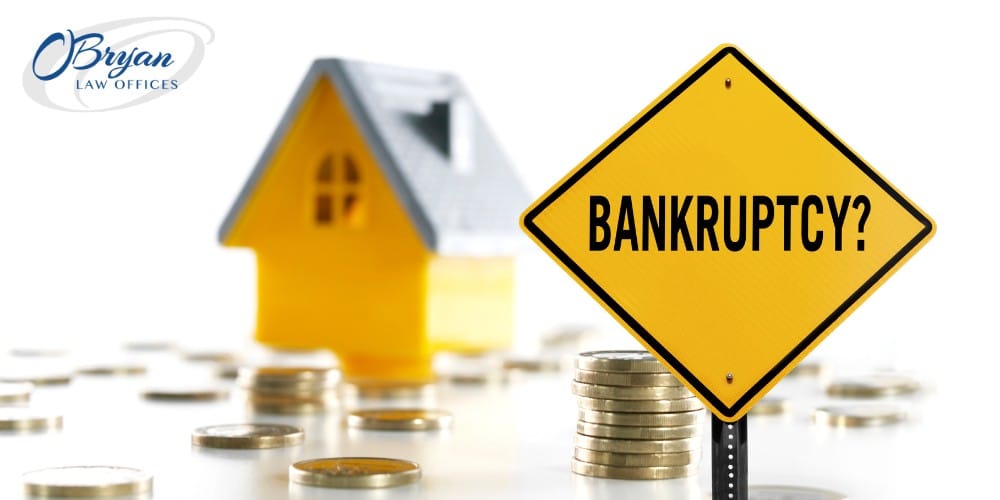
Making the decision to file for bankruptcy can be overwhelming. There is no minimum or maximum debt to qualify for bankruptcy. A single medical bill can lead a family to bankruptcy. In most cases, it’s best to file for bankruptcy sooner rather than later. Many people avoid filing bankruptcy for as long as possible, believing some of the inaccurate myths surrounding bankruptcy. This usually results in losing many more assets and accumulating more debt than filing bankruptcy sooner. At O’Bryan Law Offices, we know this is a big decision to make. We can help you through every part of the bankruptcy process and answer any questions you may have.
Does Bankruptcy Clear All Debt?
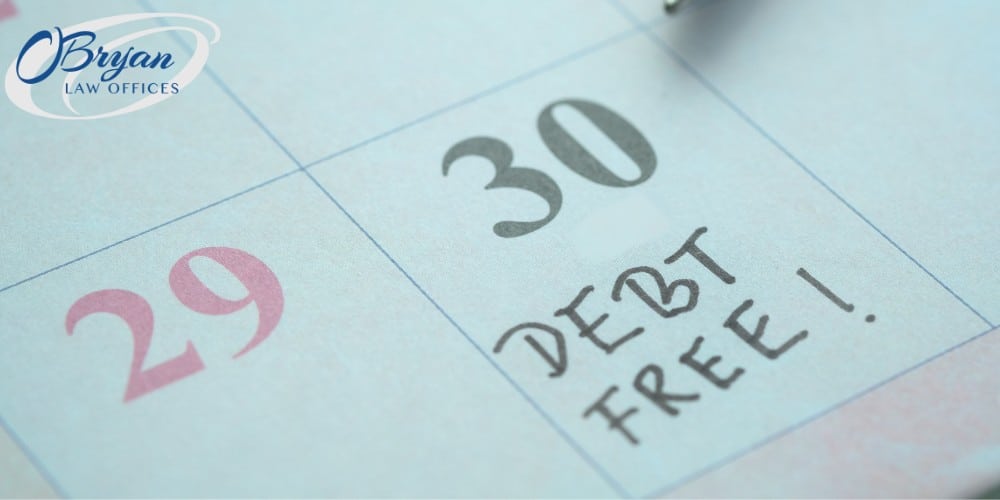
Declaring bankruptcy isn’t as simple as waving a hand and having all your debts disappear. While some debts can be discharged (or released), other debts are paid by liquidating available assets. Secured debts, or debts backed with collateral, cannot be discharged. This includes mortgages, auto loans, or anything backed by property. Alimony and child support are also non-dischargeable debts. Bankruptcy can clear a significant amount of unsecured debt, including credit card debt, some student loans, medical bills, rent, and utility bills. The best way to know how a 7 or 13 will affect you is to schedule a free consultation at 502-339-0222 and we will put your mind at ease knowing that you do have options!
Types of Bankruptcy
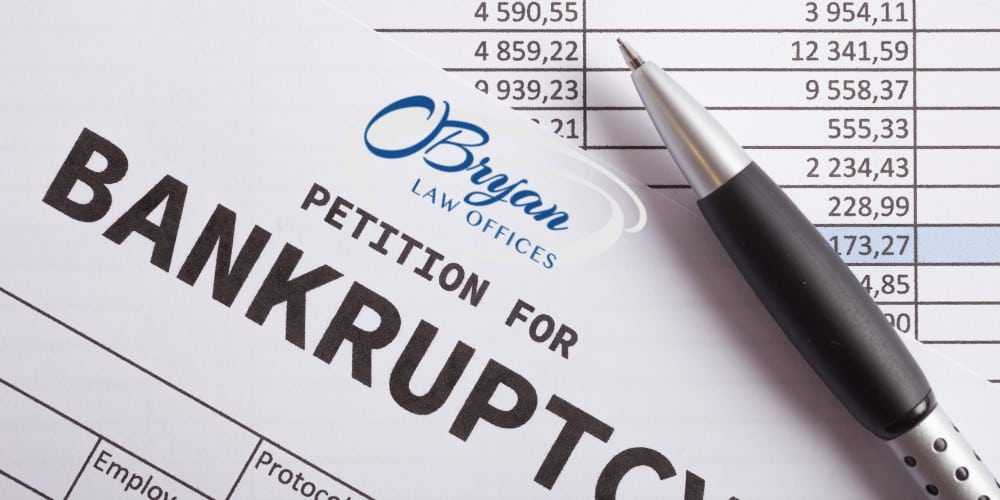
Bankruptcy is a way for consumers and businesses to find debt relief. For consumers, there are three types of bankruptcy to choose from: Chapter 7, Chapter 11, and Chapter 13. Chapter 11 isn’t often used for consumers, as it focuses on reorganizing debts. Businesses often use Chapter 11 bankruptcy, but it’s technically available for personal use as well. Chapter 11 is significantly more expensive and complicated than Chapter 7 and Chapter 13. For the sake of simplicity, we’ll only focus on Chapter 13 and Chapter 7.
Chapter 7 Bankruptcy
In Chapter 7 bankruptcy, clients are able to achieve a fresh financial start in a short amount of time. In order to qualify for a Chapter 7, you have to meet certain qualifications such as income and equity in property to name a few. Once a case is filed, clients are required to attend a “Meeting of Creditors” where a trustee will review your case. 60 days after court, you will receive a discharge from your debts. A discharged debt means you have no legal obligation to pay the debt, and your creditors can no longer harass you for payment. Once your debt is discharged, you can start rebuilding your credit.
Chapter 13 Bankruptcy
Chapter 13 bankruptcy is an extended repayment plan that lasts anywhere from 3-5 years. This type of bankruptcy combines your debts into a single monthly payment. The filer and the court calculate how much of their disposable income can go towards debt repayment. After the payment plan is finished, the remaining debt is removed. This gives clients a plan moving forward where all interest on unsecured debts cease and a plan is in place to tackle the debt once and for all. In a Chapter 13, clients are able to get current on mortgage and car loan arrears, all while paying anywhere from 100% all the way down to 1% of what is owed to unsecured creditors (depending on what your budget shows you can afford to pay).
The Cost of Bankruptcy
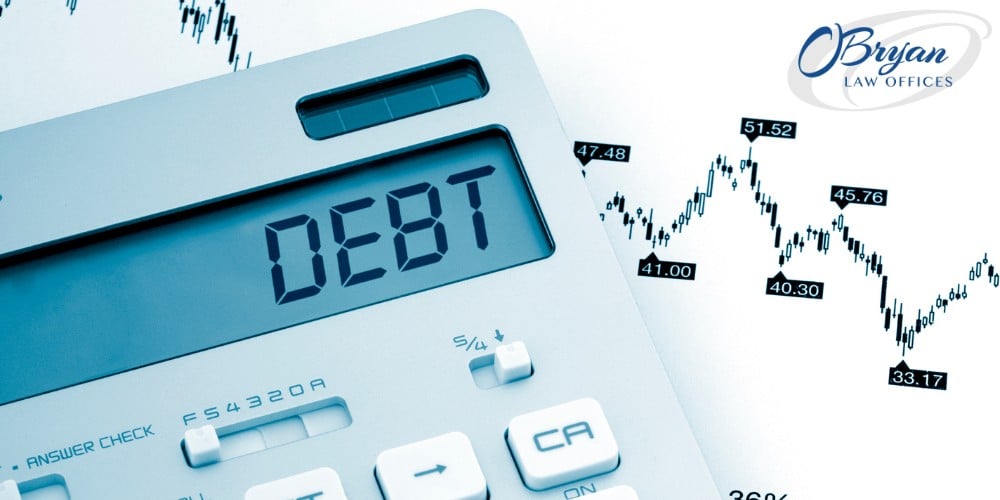
Since bankruptcy is all about debt relief, it may seem counterintuitive to have to pay money for it. Bankruptcy takes quite a bit of paperwork and knowledge to get the best outcome. Not to mention the court fees and administrative costs associated with it. Some people choose to go with a DIY approach to bankruptcy to save money, but even this route can cost a chunk of change. Even if you choose to file for bankruptcy without the help of a bankruptcy attorney, you’ll still have to pay filing and administrative fees. Using a bankruptcy attorney means that you can have complete peace of mind during this complicated process. Read on below to learn about common bankruptcy costs.
Filing Fees
Bankruptcy court filing fees are set by the U.S. Bankruptcy Courts and don’t vary by location. Filing fees for both Chapter 7 and Chapter 13 bankruptcy include a $78 administrative fee. The court filing fee for Chapter 7 bankruptcy is $245, $10 higher than the $235 it takes to file for Chapter 13 bankruptcy. Chapter 7 bankruptcy filing fees also have an additional $15 trustee surcharge. This brings the total filing cost of Chapter 7 bankruptcy to $338 and the total for Chapter 13 to $313.
Bankruptcy Attorney Fees
It’s normal for bankruptcy attorneys to charge for their services. Most bankruptcy attorneys require this fee upfront, before beginning the work on your case. At O’Bryan Law Offices, we provide a free consultation so you can know the costs associated with your case before taking the plunge into bankruptcy. Depending on the type of bankruptcy you choose, the cost may change. Many attorneys require the fee for Chapter 7 bankruptcy to be paid upfront. For a Chapter 13 petition, they may ask that half be paid up front and the rest can be rolled into your monthly payment plans. The fees may also depend on the complexity of your case. At your free initial consultation, a skilled attorney from O’Bryan Law Offices can go over the details of your case and determine the best plan going forward.
Hourly Fees vs. Flat Fees
Some bankruptcy attorneys charge a flat fee for filing your bankruptcy petition, regardless of how many hours it takes. Other attorneys charge by the hour, which can add up quickly. These legal fees go towards paying the bankruptcy lawyer and the team that files your bankruptcy petition. At O’Bryan Law Offices, we operate under a flat fee structure. This means that you know the full cost of your bankruptcy case before it begins, so you aren’t hit with any unexpected charges.
Additional Fees
As part of your bankruptcy petition, you have to receive credit counseling from an approved credit counseling agency. The credit counseling fee at other agencies can range from $10-$50. Luckily for you, O’Bryan Law Offices offers approved credit counseling courses.
You also have to attend a personal financial management course after you file bankruptcy. This debt education course usually ranges between $50-$100.
How Do I Pay for My Bankruptcy Fees?

Since many people only consider bankruptcy as a last resort, it can be difficult to come up with the additional funds to file for bankruptcy. Some people may resort to selling household items to pay for bankruptcy fees, but it’s best to speak with a qualified bankruptcy attorney first. Some ways to reduce the expense of filing bankruptcy include fee waivers. When filing Chapter 7 bankruptcy, the court may waive the filing fee if you can’t afford it. The general qualification is if your income is at or less than 150% of the poverty line. You can also ask the court to set up a payment plan for your filing fees.
Payment Plans
Setting up a payment plan for some costs can offset the burden of bankruptcy. In some situations, you can even pay attorney fees with a payment plan. Payment plans allow filers to file their petition in a timely manner and still be able to afford necessities. Don’t let the fear of not being able to afford these fees prevent you from considering bankruptcy. At O’Bryan Law Offices, we can discuss your options and give you the resources you need to make tough financial decisions.
Life After Bankruptcy

At the O’Bryan Law Offices, we understand the stress that comes with financial insecurity. We also know that the effects of bankruptcy can last long after the debts are discharged or paid off. Our team can support you through the bankruptcy process and long after. Our office has helped over 30,000 families find debt relief through bankruptcy. We can help you take the necessary steps to rebuild your credit after filing bankruptcy. Remember to check your credit report often to make sure your credit score is where it should be.
Get What You Pay For With O’Bryan Bankruptcy Attorneys
The bankruptcy process can be complicated to understand, especially for someone unfamiliar with the nuances of bankruptcy law. Let us help you! The O’Bryan Law Offices is a family-owned bankruptcy law firm. With a combined experience of over 40 years, our dedicated attorneys are prepared to handle your case with the attention it deserves.
The bankruptcy attorneys at O’Bryan Law Offices are ready to help take the stress out of this process and put you on the path to a successful financial future. Call us today at (502) 400-4020 to schedule a free bankruptcy evaluation with a qualified bankruptcy attorney.


